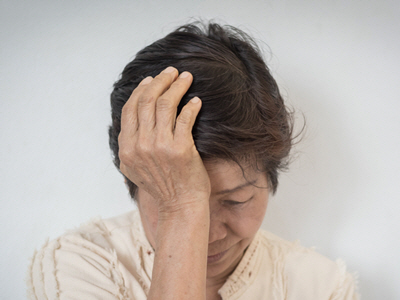 Panic is a Lonely Disease
Panic is a Lonely Disease
Heart pounding out of your chest? Stomach in knots?
Maybe you just don’t feel like yourself.
Many people suffering with panic do so in silence.
They gradually stop going out and interacting with others. Places like a crowded restaurant or the subway make them feel trapped, and they have a hard time focusing.
You may have rushed to the ER or cardiologist thinking you were dying only to have them tell you “it was all in your head.”
It’s More Than Psychological
While panic has psychological origins, it attacks our whole body. It hijacks our natural defenses and turns them against us.
The panic cycle begins when we start to pay more attention to subtle changes in our physiology. Soon, what once felt normal is interpreted with caution and even fear.
This response causes our adrenaline to spike and narrows our vision and our thoughts toward impending doom. Our body reacts again as if we’re in danger and prepares us to fight, but because there’s no big bully or bear to defend against we again turn on ourselves going even deeper into the tunnel of panic thinking.
Don’t Panic – Get Help Now
For most people, the worst is all over in about 10 minutes, but the aftereffects and trauma of an episode can last much longer.
Panic is a terrifying place to be but you don’t have to face it alone.
Taking drugs can suppress the body’s responses for a time, but your body will rebel and try and fight through the medicine. This is because your natural defenses are inflamed to help you survive.
Only when we unlock the power of our mind and train our bodies not to react so forcefully can we find peace again.
Biofeedback shows your mind what’s happening internally and lets it learn to relax it naturally without drugs. CBT works to retrain your mind and body.
Start Facing Your Fears and Feeling Confident Again
Phil was a 46-year-old researcher at a local university.
He spent a lot of time in the lab and had been successful in publishing and obtaining grants (even in the difficult climate of governmental cuts).
Recently, at an awards dinner, Phil noticed his chest beginning to feel tight. He was struck with worry that he might faint. He clutched his wife’s hand and she helped him to the exit.
As he stepped out into the bracing air of the autumn evening, he felt like he could breathe again.
But it wasn’t until he was home on the couch that he really felt calm.
Since then, Phil had been making excuses and avoiding social engagements and work events in large venues. He was worried because there was an important conference in a few months and he knew he would be expected to present his data.
Phil thought there might be something wrong with his heart, but after visiting the ER and two cardiologists, he was frustrated to learn it was anxiety. His doctor gave him a pill that calmed his nerves a bit, but he couldn’t shake the sense of terror about the coming conference.
After working with me, Phil learned about the symptoms of Panic Disorder and Agoraphobia.
He learned to self-regulate his nervous system through biofeedback.
He began to feel more in control.
He challenged his doubts with evidence from his career that he was actually a successful professor.
He practiced his talk and gained confidence in session.
Finally, the day came and he was off to Phoenix for the presentation. Phil was scared and called me from backstage. He was surprised, however, that his knees didn’t buckle and his words flowed out fluidly.
The crowd roared with approval and he smiled as he descended from the stage. He did it!
Live the Life You Were Meant to Live
Why suffer in silence?
Phone consultation is free. Call or text (917) 740-9547, or email and get back on the road to living life the way you used to.

